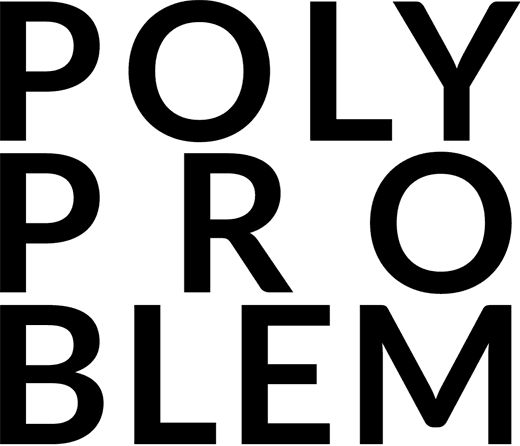Reports
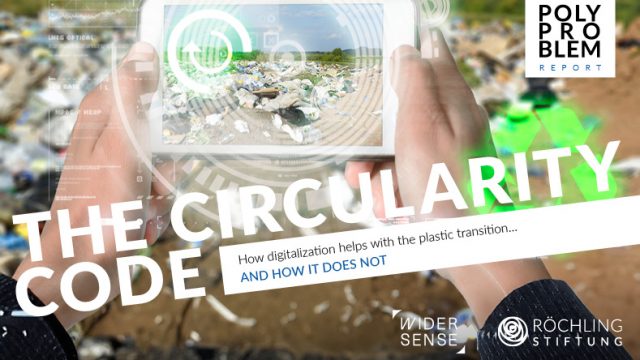
Report – The Circularity Code
Due to their complexity, plastic products pass through many stages from production to use and finally to recycling. A lot of data can be generated in the process. But what is the actual potential behind such data and digital tools for the transition to a circular economy and the avoidance of plastic waste emissions? In …
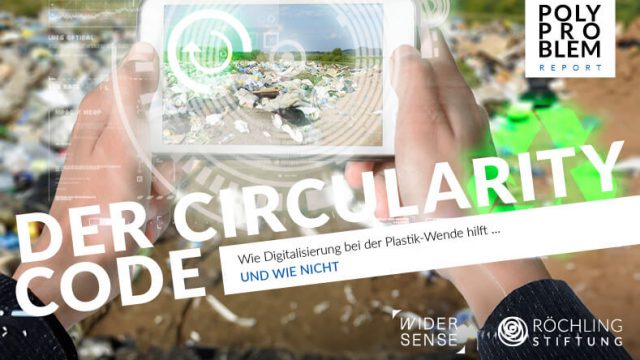
Report – Der Circularity Code
Aufgrund ihrer Komplexität von der Herstellung bis zur Anwendung und schließlich zum Recycling durchlaufen Kunststoffprodukte viele Stationen. Hierbei lassen sich viele Daten generieren. Doch welches Potenzial steckt hinter solchen Daten und digitalen Werkzeugen für den Übergang in eine Kreislaufwirtschaft und die Vermeidung von Plastikmüll-Emissionen tatsächlich? Von der digitalen Unterstützung beim Design, über die ökologische Gesamtbewertung …

Report – Buy Your Way Out
The idea is explained quickly: individuals and companies pay for so-called plastic credits so that NGOs and social enterprises remove plastic waste from the environment. But it is not quite that simple, because the plastic crisis is not only an ecological and economic problem, but also a social one. The accusation of greenwashing always resonates, …
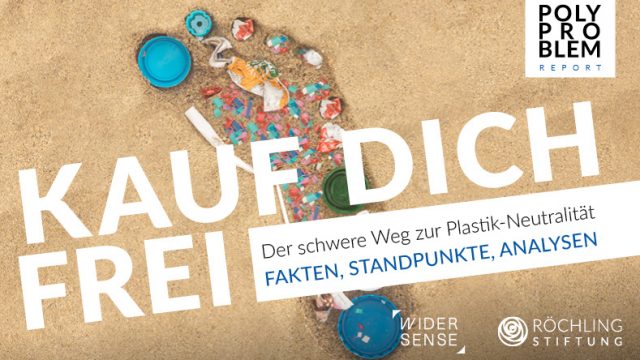
Report – Kauf Dich frei
Das Prinzip ist schnell erklärt: Einzelpersonen und Unternehmen zahlen für sogenannte Plastic Credits, damit NGOs und Sozialunternehmen Plastikmüll aus der Umwelt entfernen. Doch ganz so einfach ist es nicht, denn die Plastikkrise ist nicht nur ein ökologisches und ökonomisches, sondern auch ein soziales Problem. Der Vorwurf des Greenwashings schwingt immer mit, vor allem wenn es …
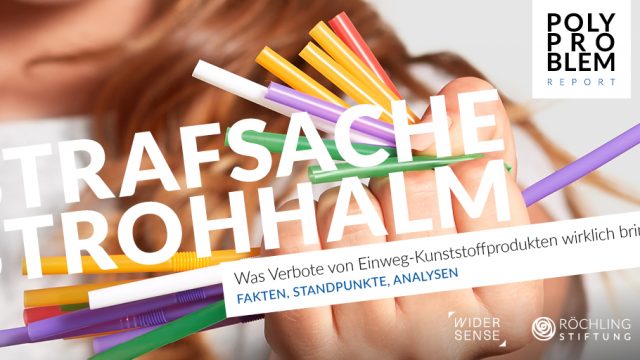
Report – Strafsache Strohhalm
In den meisten Staaten der Erde ist die Verbreitung und Nutzung bestimmter Einwegartikel aus Kunststoff verboten. In Ländern wie Kenia ist die Plastiktüte daher sogar bereits gefragte Schmuggelware. Aber was wissen wir eigentlich über die Erfolge dieser Verbote? Haben sie zu einer tatsächlichen und signifikanten Verringerung des Plastikmüllaufkommens geführt? Haben die Verbote zu mehr Sensibilität …
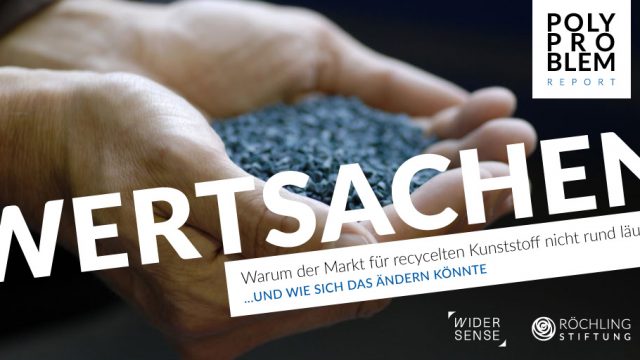
Report – Wertsachen
Der Markt für recycelten Kunststoff ist kaputt – so fasst der neue POLYPROBLEM-Report die Lage beim Thema Plastik-Wiederverwertung zusammen. Die Studie der Röchling Stiftung und des Beratungshauses Wider Sense in Kooperation mit cirplus analysiert, woran der Kunststoff-Kreislauf aktuell scheitert und liefert Lösungsansätze für Politik und Industrie. Knapp 400 Millionen Tonnen Kunststoff werden derzeit pro Jahr …
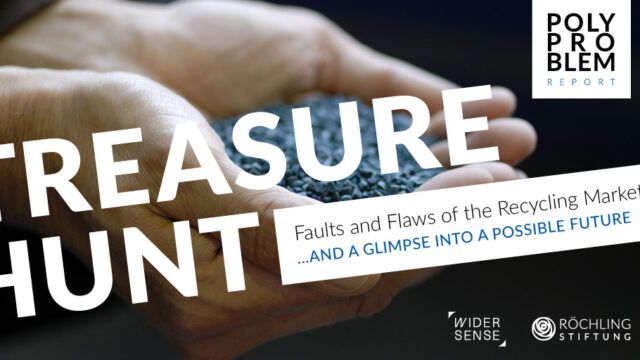
Report – Treasure Hunt
The market for recycled plastics is broken – this is the central finding of the latest POLYPROBLEM topic report. “Treasure Hunt” is the second POLYRPOBLEM topic report of this year. This time, the report was conducted in cooperation with cirplus. Its goal is to not only summarize the situation regarding the recycling of plastics, but …
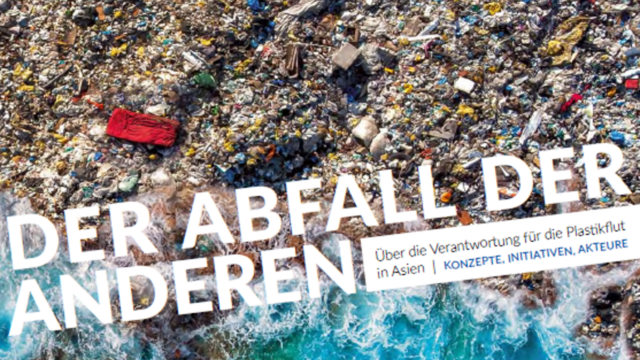
Report – Der Abfall der Anderen
Der größte Teil des Plastikmülls gelangt aus Schwellen- und Entwicklungsländern des globalen Südens in die Ozeane. Entsprechend vielfältig sind die Bemühungen von Politik, Unternehmen, Wissenschaft und NGOs um ein funktionierendes Abfallmanagement in diesen Ländern. Aber helfen diese vielen Projekte überhaupt? Der neue POLYPOROBLEM-Report nimmt Ursachen und Wirkungen unter die Lupe, klärt wichtige Begriffe, nennt Fakten …
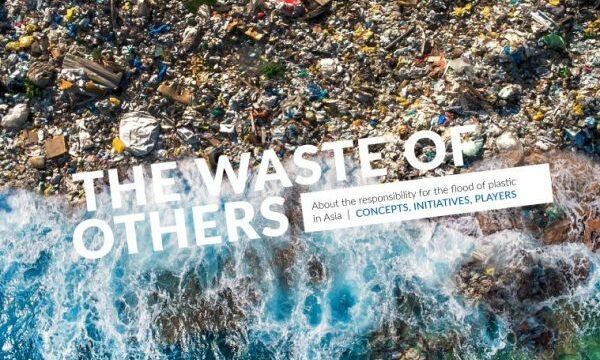
Report – The Waste of Others
Most of the plastic waste ends up in the oceans from emerging and developing countries of the Global South. The efforts of politics, companies, science and NGOs to achieve comprehensive waste management in these countries are correspondingly diverse. But do these many projects help at all? This POLYPOROBLEM Report examines causes and effects, clarifies important …
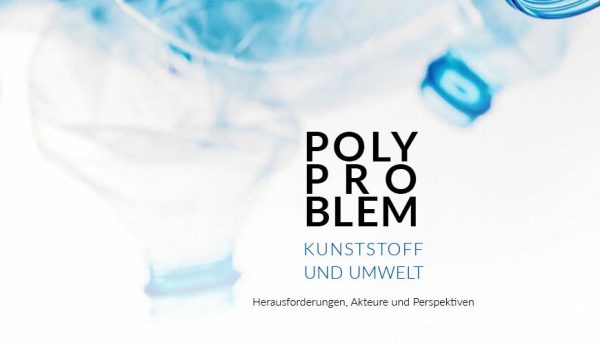
Report – Kunststoff und Umwelt
Der kritische Befund der ersten POLYPROBLEM-Studie: Trotz enormer öffentlicher Aufmerksamkeit für die fortschreitende Umweltbelastung durch Plastik ist eine globale Agenda zur Lösung des Problems nicht in Sicht. Trotz der enormen öffentlichen Aufmerksamkeit für die fortschreitende Umweltbelastung durch Plastikabfälle ist eine globale Agenda zur Lösung des Problems nicht in Sicht. Das ist der kritische Befund des …
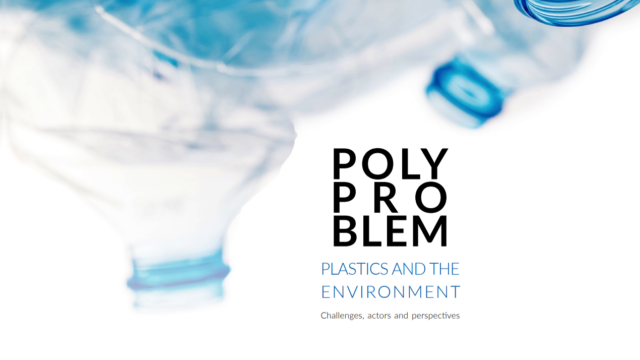
Report – Plastics and the Environment
Despite enormous public attention to the increasing environmental impact of plastic waste, a global agenda to solve the problem is not in sight. This is the critical finding of the first POLYPROBLEM Report, which the Röchling Foundation and the consulting firm Wider Sense have jointly published under the title POLYPROBLEM. Not a day goes by …
